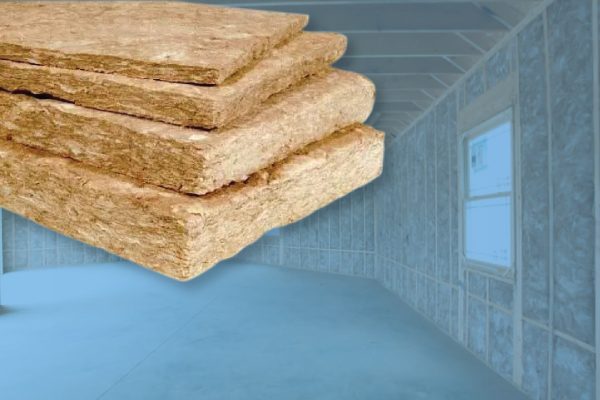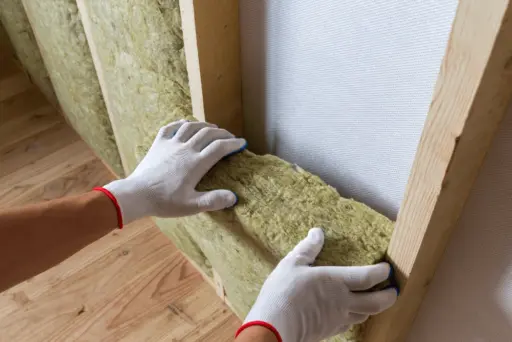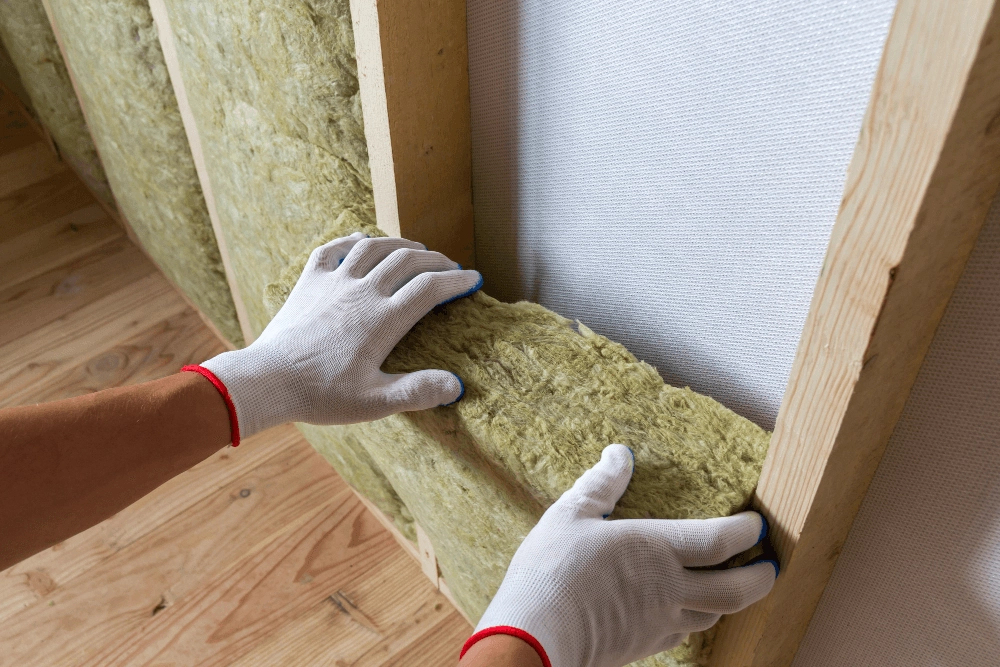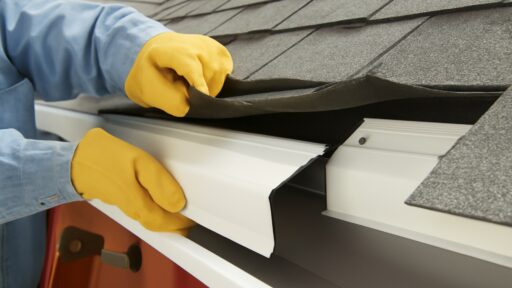If you’re exhausted from noisy surroundings constantly shattering your concentration and tranquility, you might want to consider soundproofing. It’s a process that allows homeowners to create a peaceful sanctuary where they can unwind after a long, hard day at work, without worrying about disruptive sounds penetrating their personal space.
Soundproofing uses insulation that absorbs sound waves or blocks them from passing through. This process is typically done when a property is built. The key to doing it successfully is selecting the best insulation for soundproofing based on several factors, such as noise intensity or the type of building requiring soundproofing.
Types of Soundproofing Insulation Materials
The first step in soundproofing is to choose a material that best suits your requirements. Here are some of the most commonly used acoustic insulation materials:
- Mineral wool (Rockwool)
- Fiberglass
- Fabric-wrapped acoustic panels
- Spray foam
- Cellulose
- Acoustic foam panels
- Loaded vinyl
Choosing the Right Insulation for Soundproofing

There are no wrong insulation materials for soundproofing, but the right choice depends on what you want to achieve. Follow these seven steps to choose the appropriate acoustic insulation for your property:
1. Check the Noise Level
When deciding on an insulation material, start by checking the level or source of noise that needs to be blocked out. For example, specially designed, soft foams may be ideal for minimal noise, but advanced insulators may be necessary for heavy-duty machinery sounds.
2. Check Material Composition
It is important to check what your insulation material is made of. For example, eco-conscious homeowners might prefer insulation made from sustainable materials; cellulose insulation, made from recycled paper, would be perfect for them. Meanwhile, if fire resistance is your priority, you could consider fire-resistant insulators like rockwool.
3. Assess the Noise Propagation
Noise can either be structure-borne or airborne. To select the best soundproofing insulation, you must also determine how the noise travels from its source into your room.
Certain insulators are better suited for structure-borne noise transmission and will be ineffective for airborne noise, and vice versa. For instance, closed-cell spray foam insulation blocks structure-based noises, while open-cell spray foam blocks airborne noises.
4. Check for Thermal Insulation Properties
Some soundproofing materials also have thermal insulation features that help reduce heat within a room. You can consider these materials for cost-effectiveness and the added advantage of heat reduction, which is beneficial for industrial settings.
5. Define Your Soundproofing Objective
When choosing soundproofing insulation, you must also understand why you need it in the first place. If you’d like to lock sound in, you should consider materials that lock it in instead of options like mass-loaded vinyl designed to keep noises out.
6. Consider the Ease of Installation
The ease of installation significantly varies between different insulation types, and this is an important consideration when choosing soundproofing materials. For example, spray foam insulation requires professional help for installation, while materials like rockwool and fiberglass are sometimes DIY-friendly.
Or, if you’re looking to decouple ceilings and walls to prevent sound from traveling through them, resilient channels would be better than resilient sound clips.
7. Identify Areas That Need Soundproofing
Lastly, you must also check which areas of your space require soundproofing insulation, as this will help you choose the right materials. For example, cellulose insulation has a dense composition that traps air and sound waves very effectively, making it suitable for irregular surfaces and installation between walls and ceilings.
However, if you want insulation in a more humid or damp environment, such as your kitchen, Rockwool may be a better choice due to its water-repellent properties.
Final Thoughts
Many homeowners long for a peaceful home environment, but that doesn’t come from soothing aesthetics and minimal decor. Soundproofing insulation is essential for creating a serene space that you can genuinely enjoy without any unwanted noise disrupting the peace and quiet in your home, especially if you live in crowded locations or areas where heavy machinery or construction work is common. Keeping the key considerations in mind, you can choose insulation ideal for your needs, and as a result, significantly enhance the serenity of your space.








